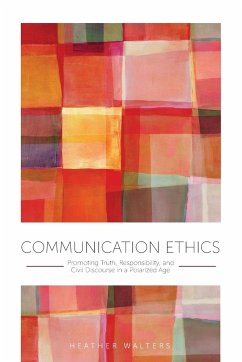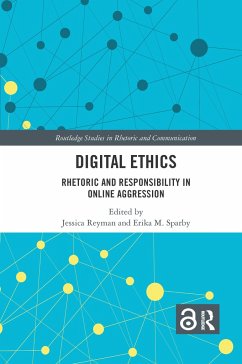
Communication Ethics and Crisis
Negotiating Differences in Public and Private Spheres
Versandkostenfrei!
Versandfertig in 1-2 Wochen
59,99 €
inkl. MwSt.
Weitere Ausgaben:

PAYBACK Punkte
30 °P sammeln!
This collection of essays extends the conversation on communication ethics and crisis communication to offer practical wisdom for meeting the challenges of a complex and ever-changing world. In multiple contexts ranging from the intrapersonal, interpersonal, and family to the political and public, moments of crisis call us to respond from within particular standpoints that shape our understanding and our response to crisis as we grapple with contested notions of "the good" in our shared life together.














